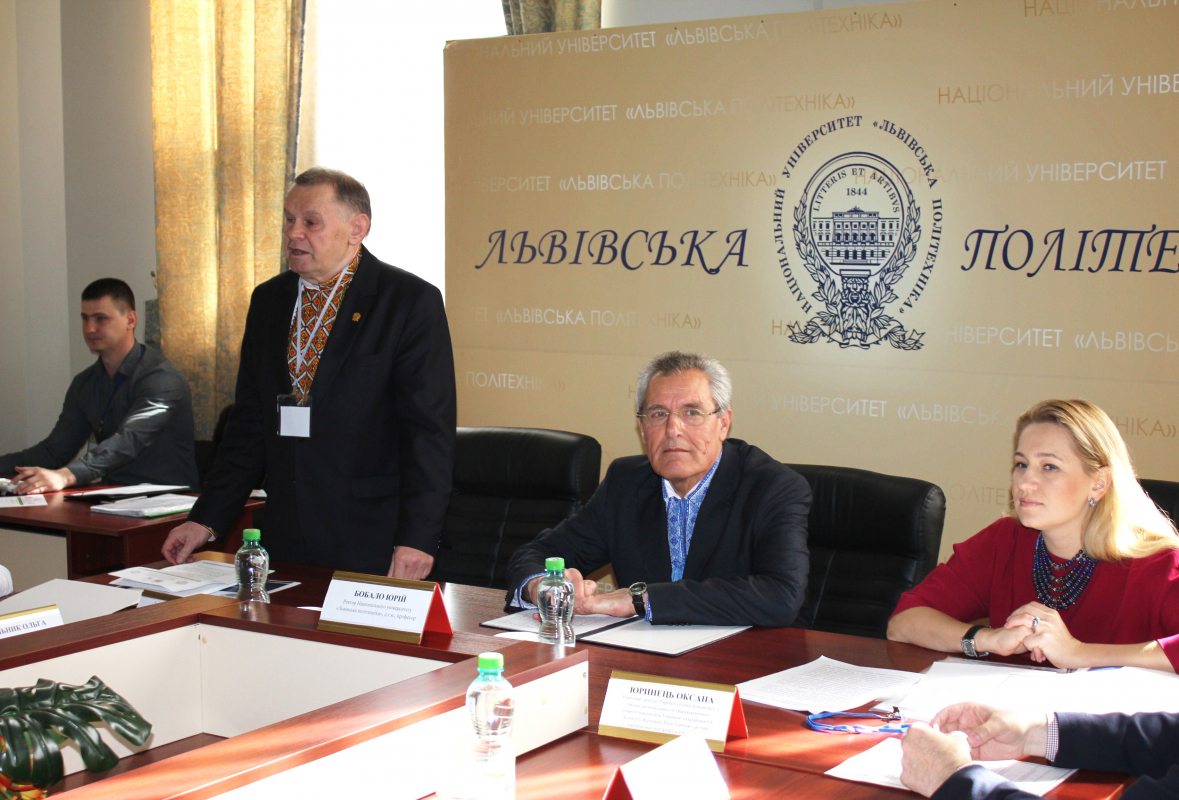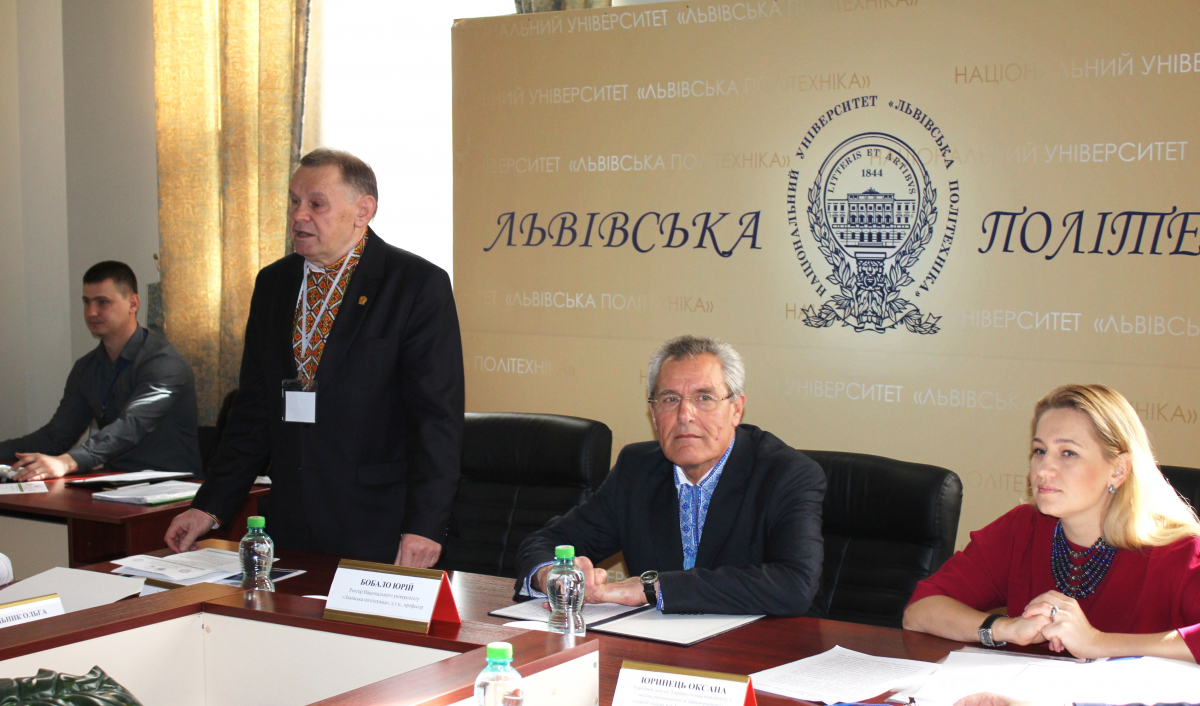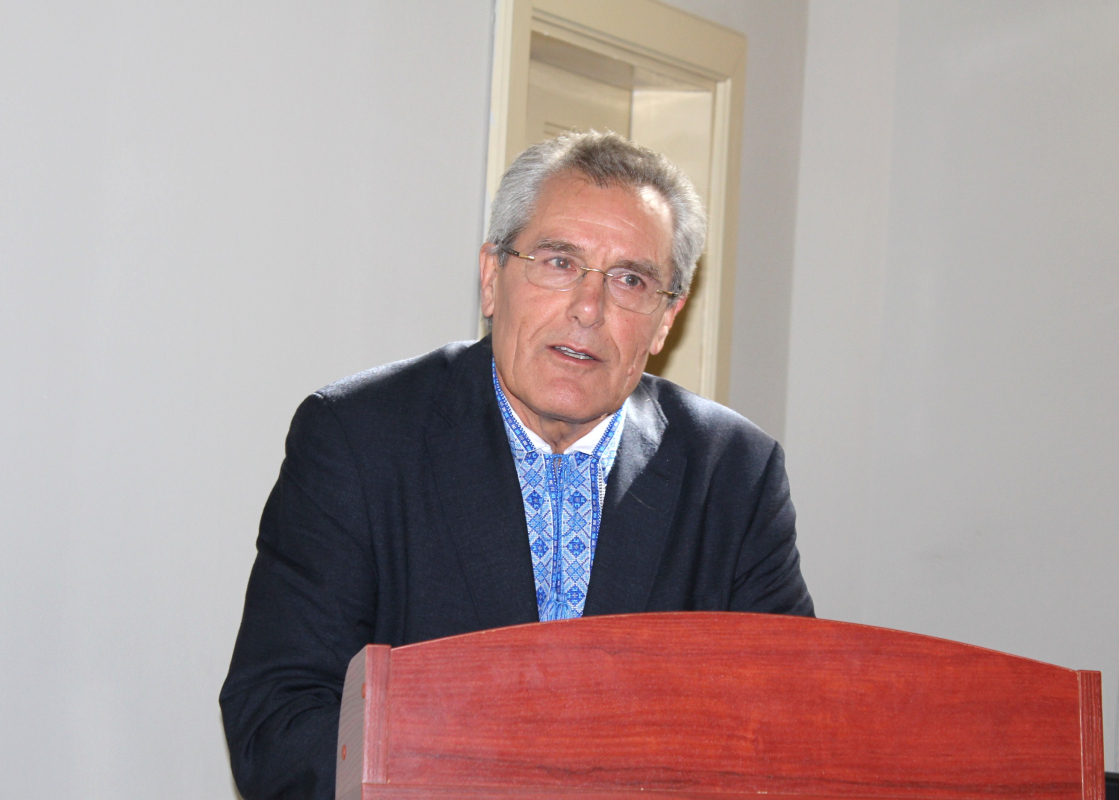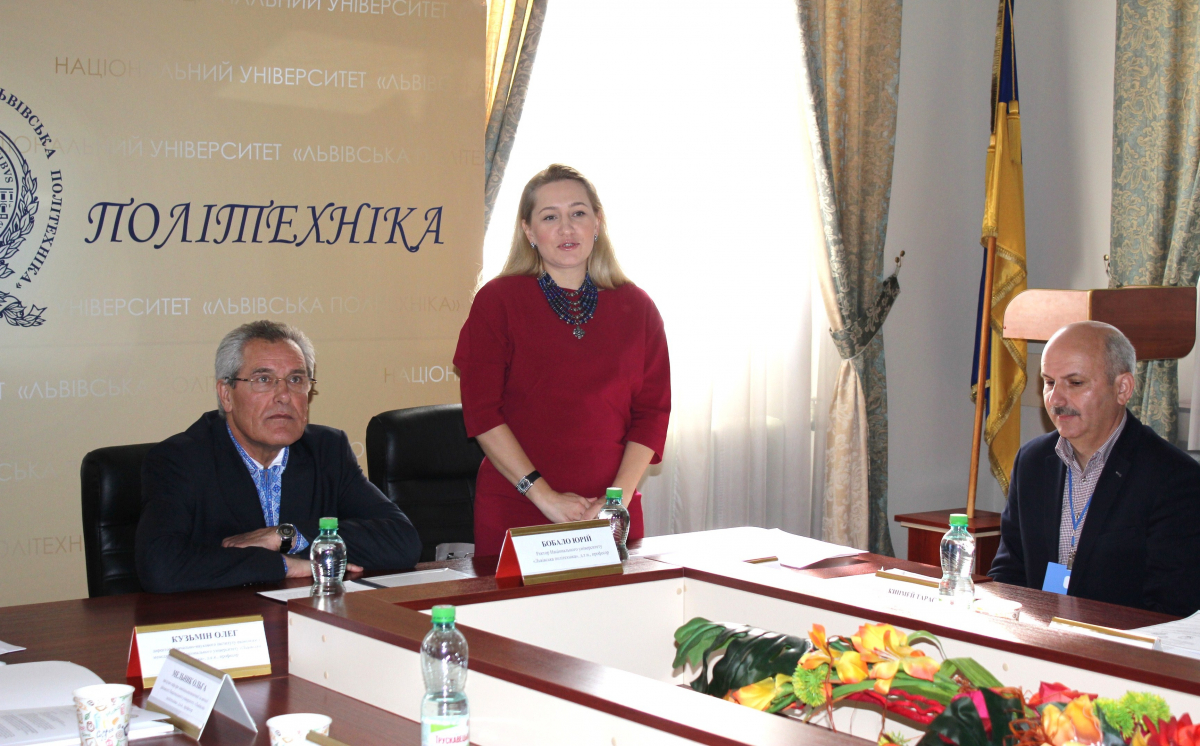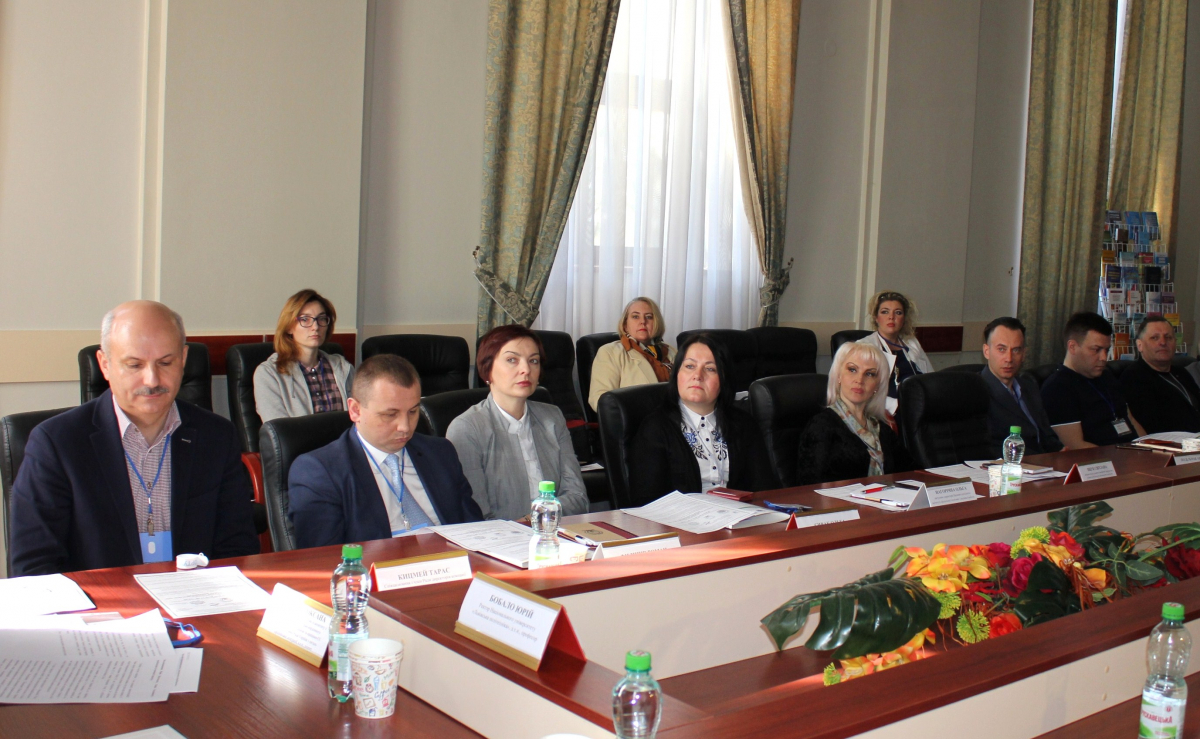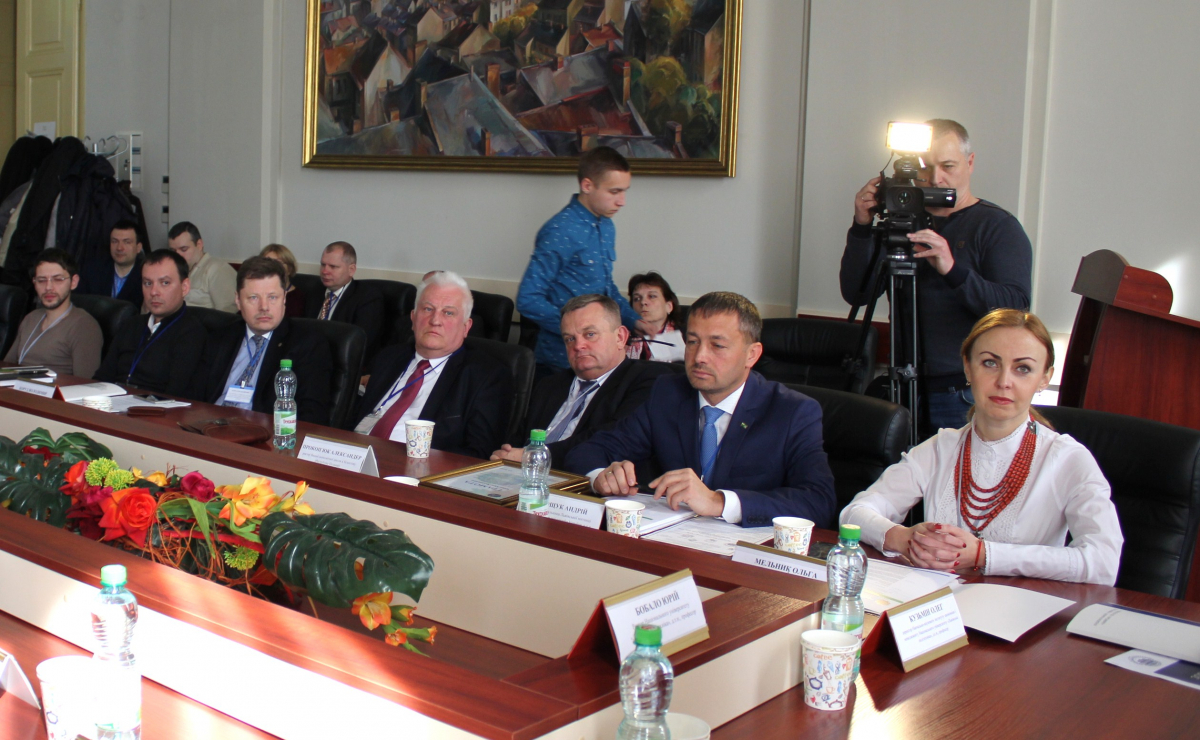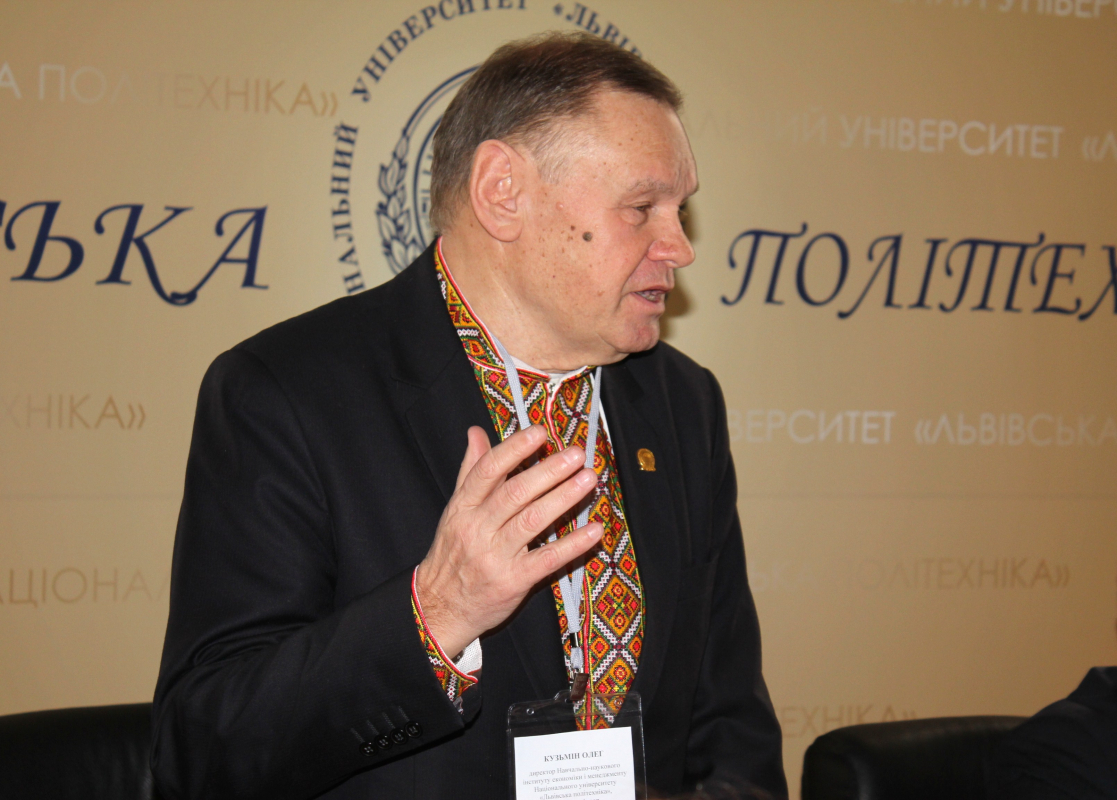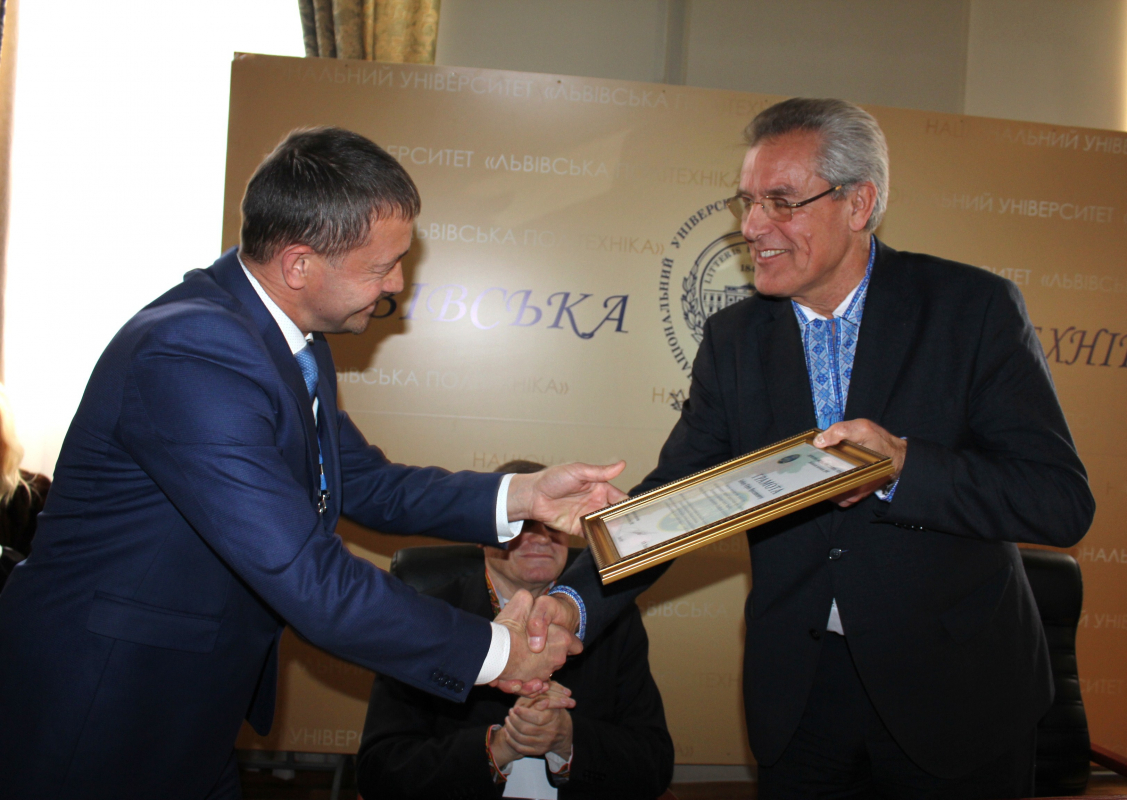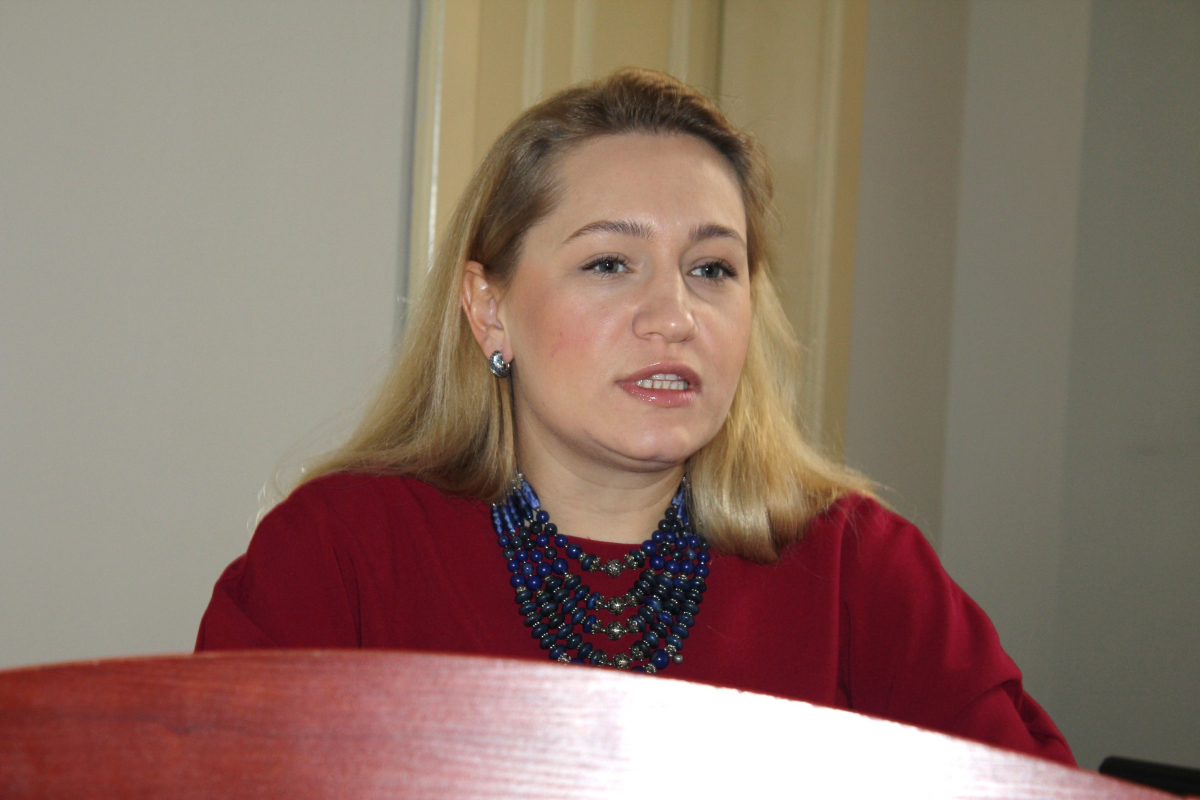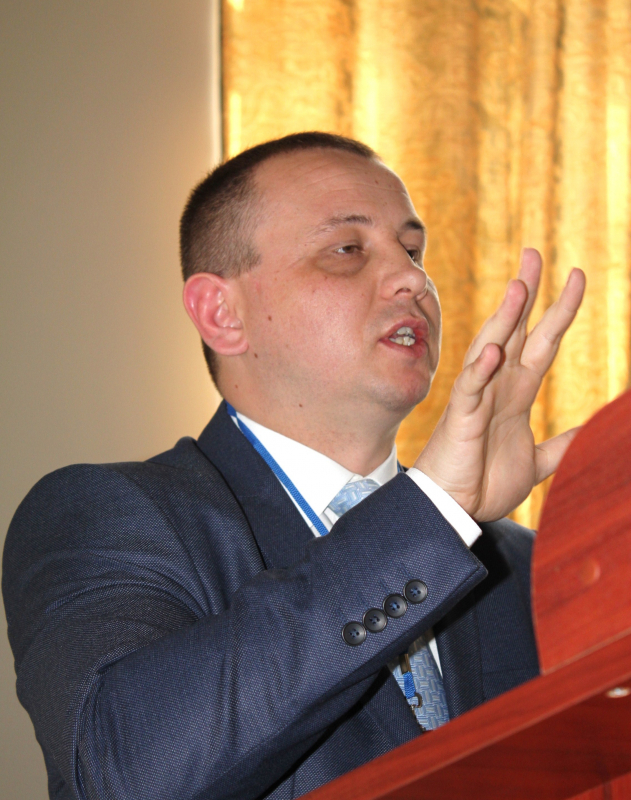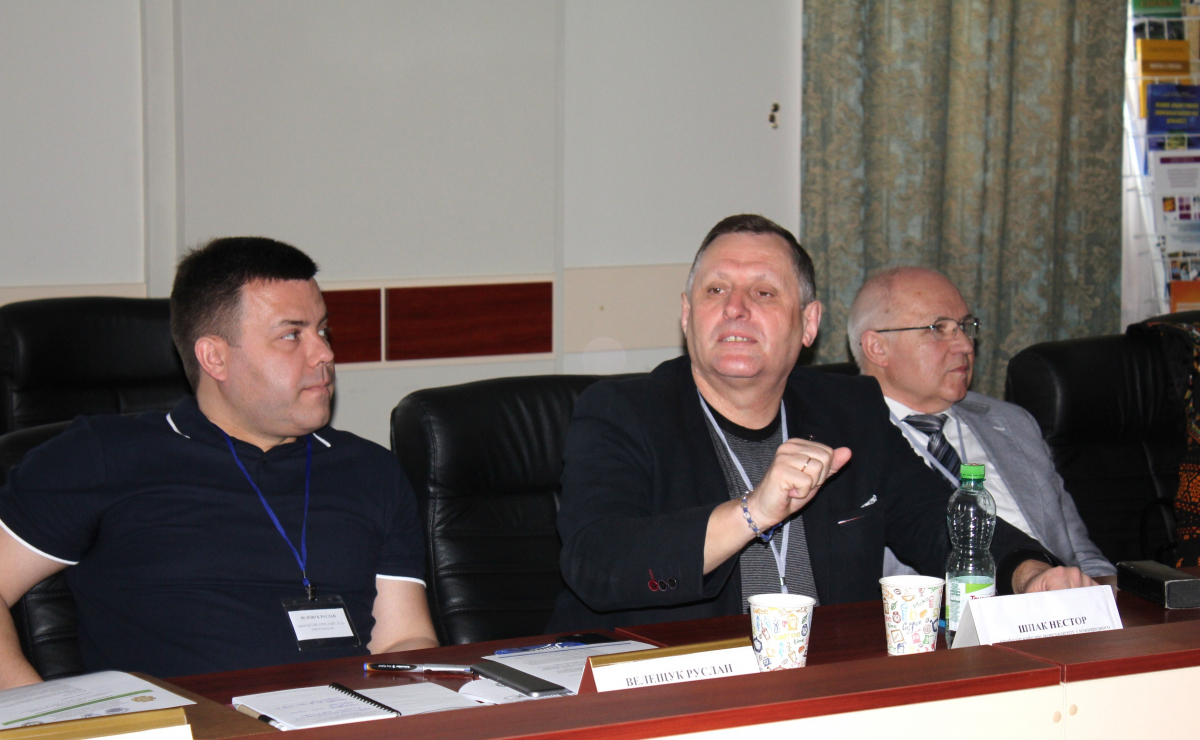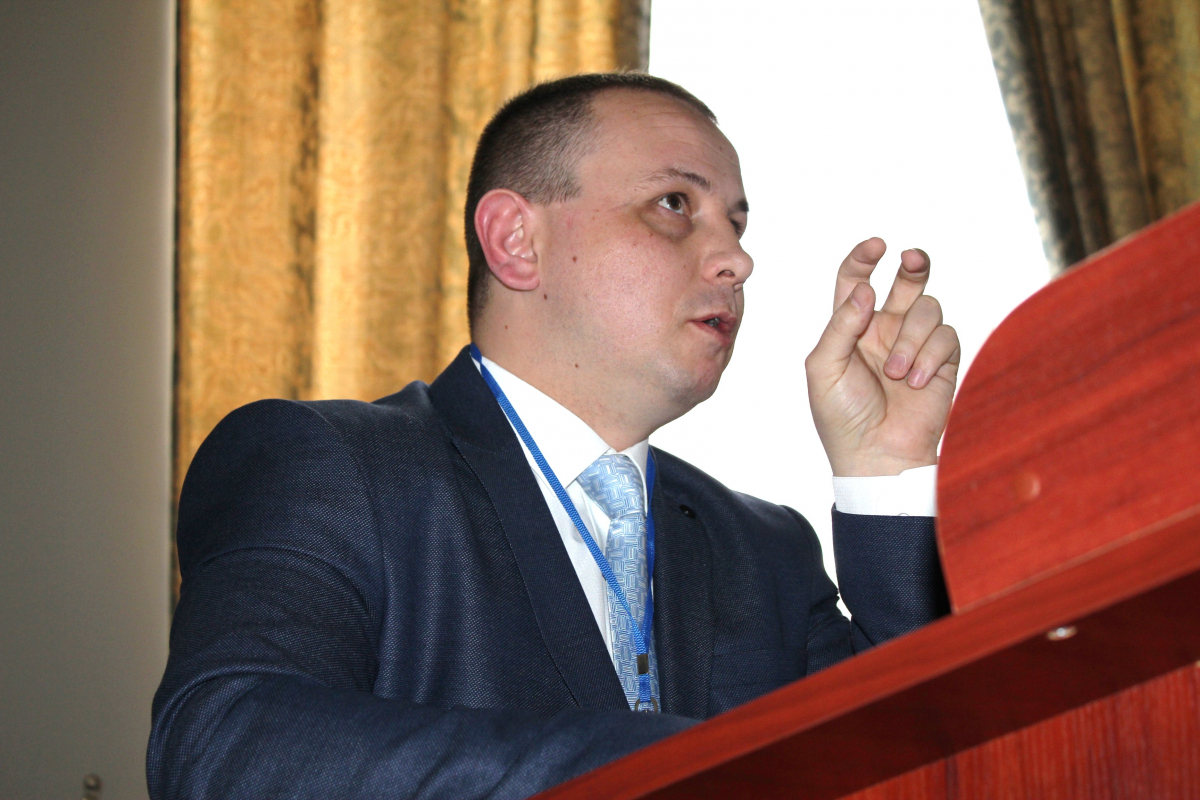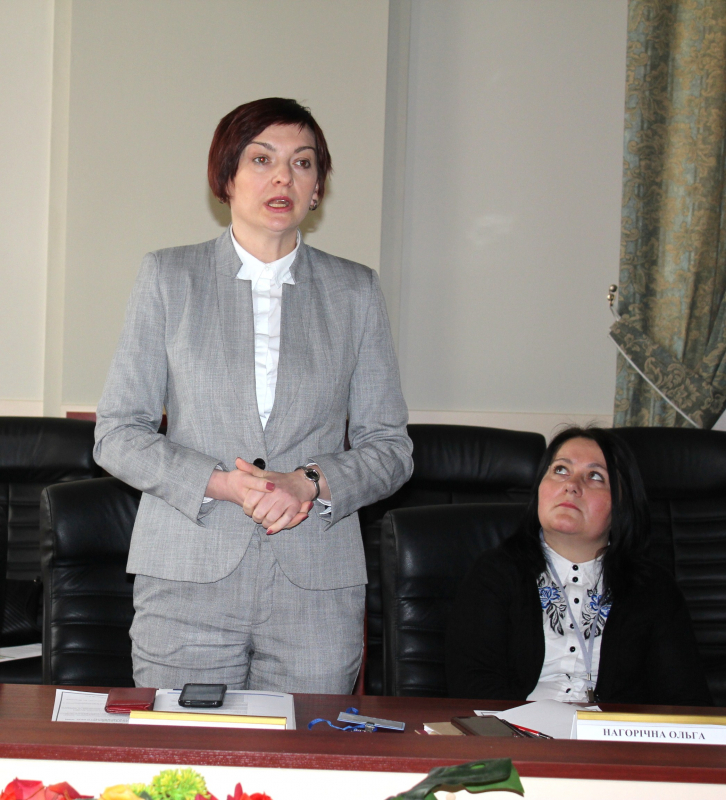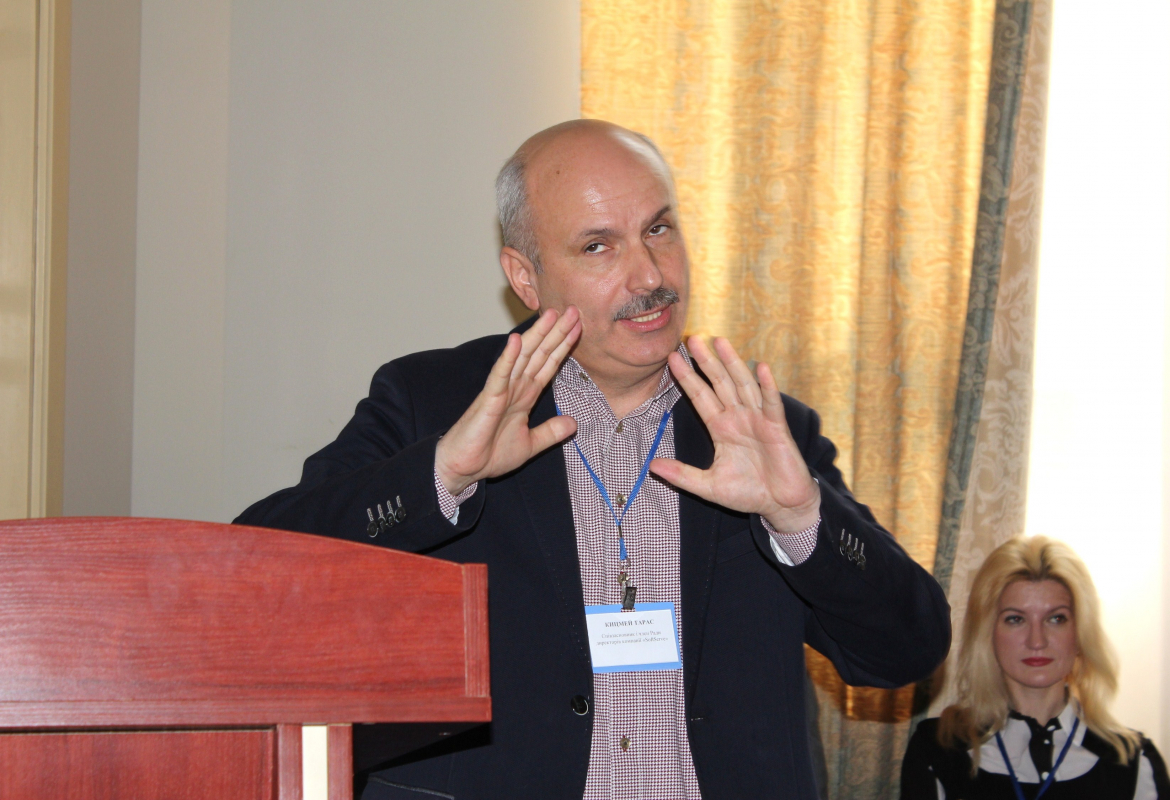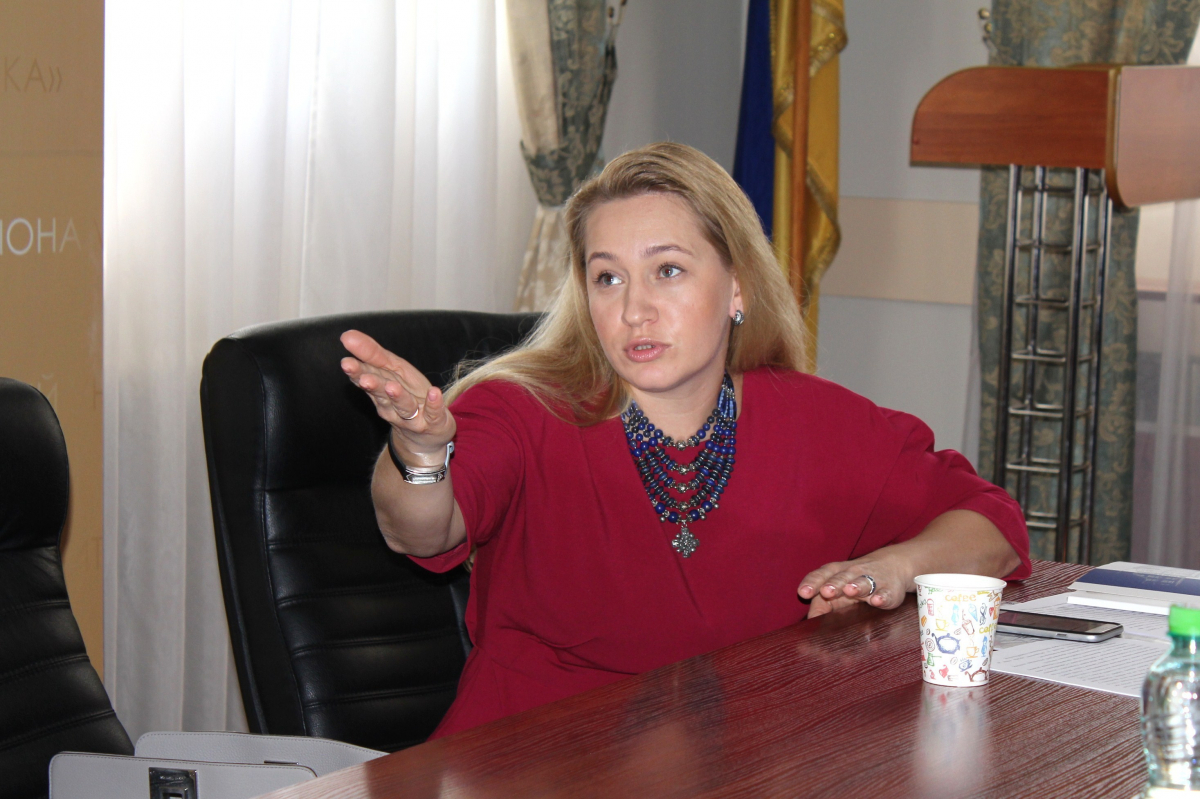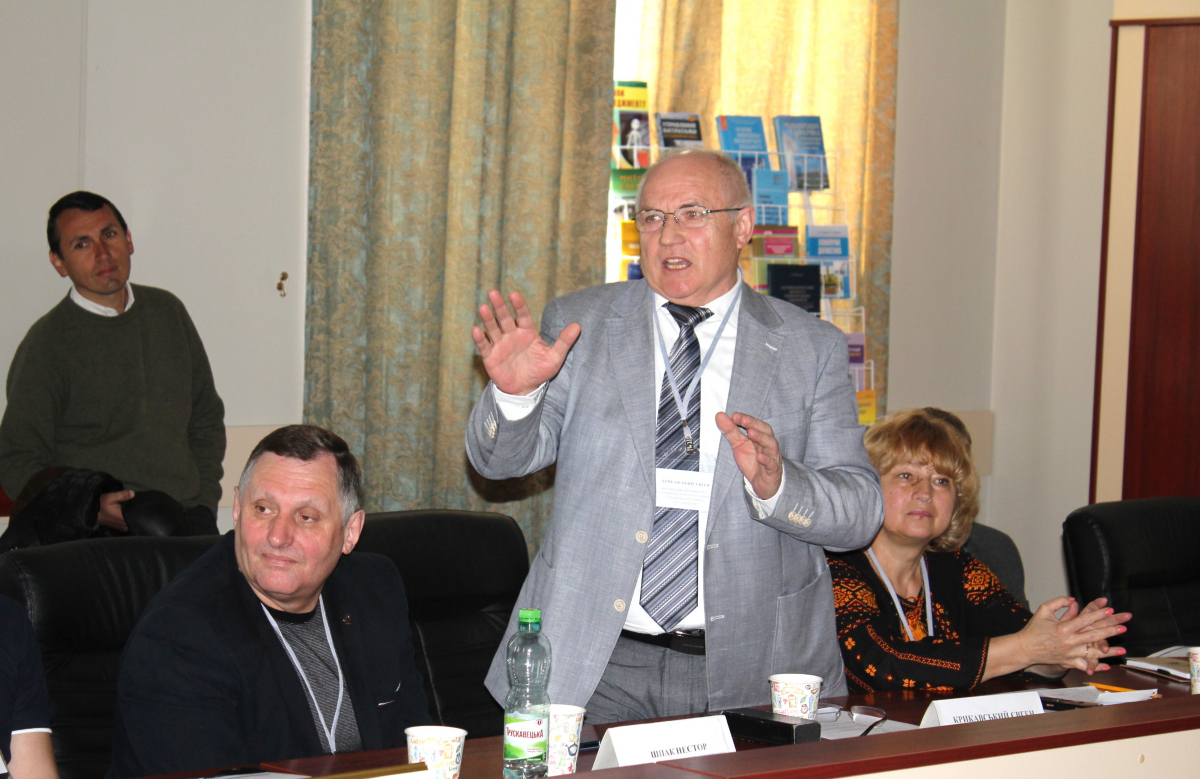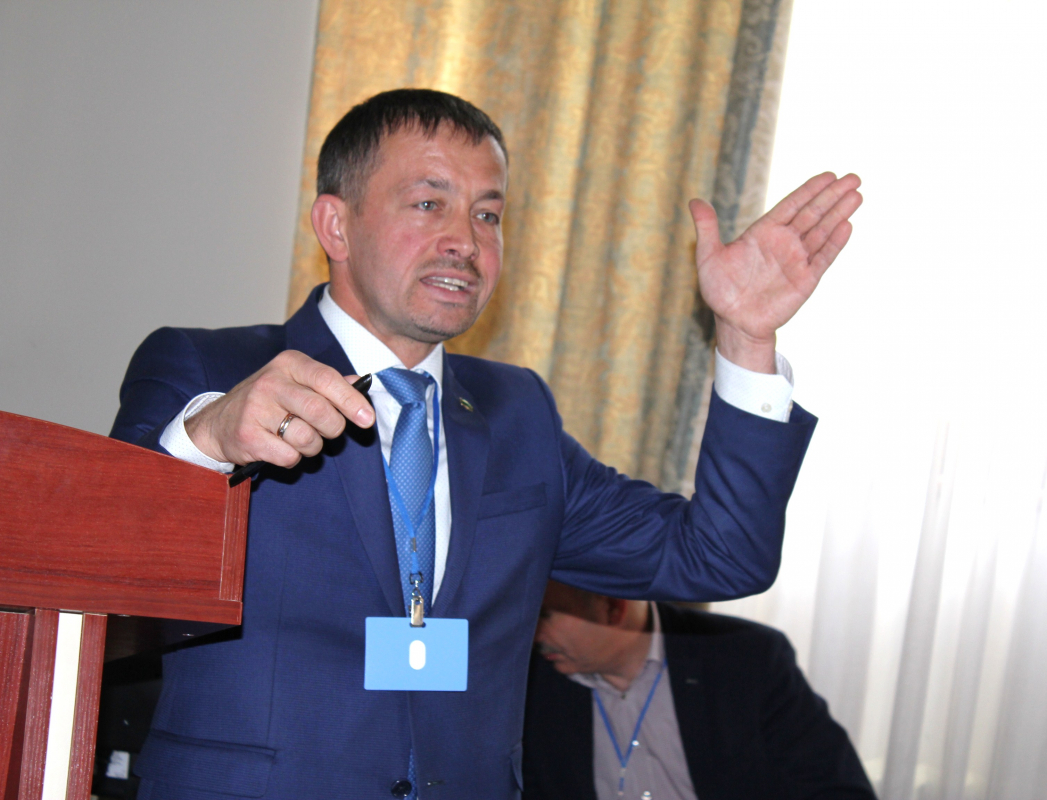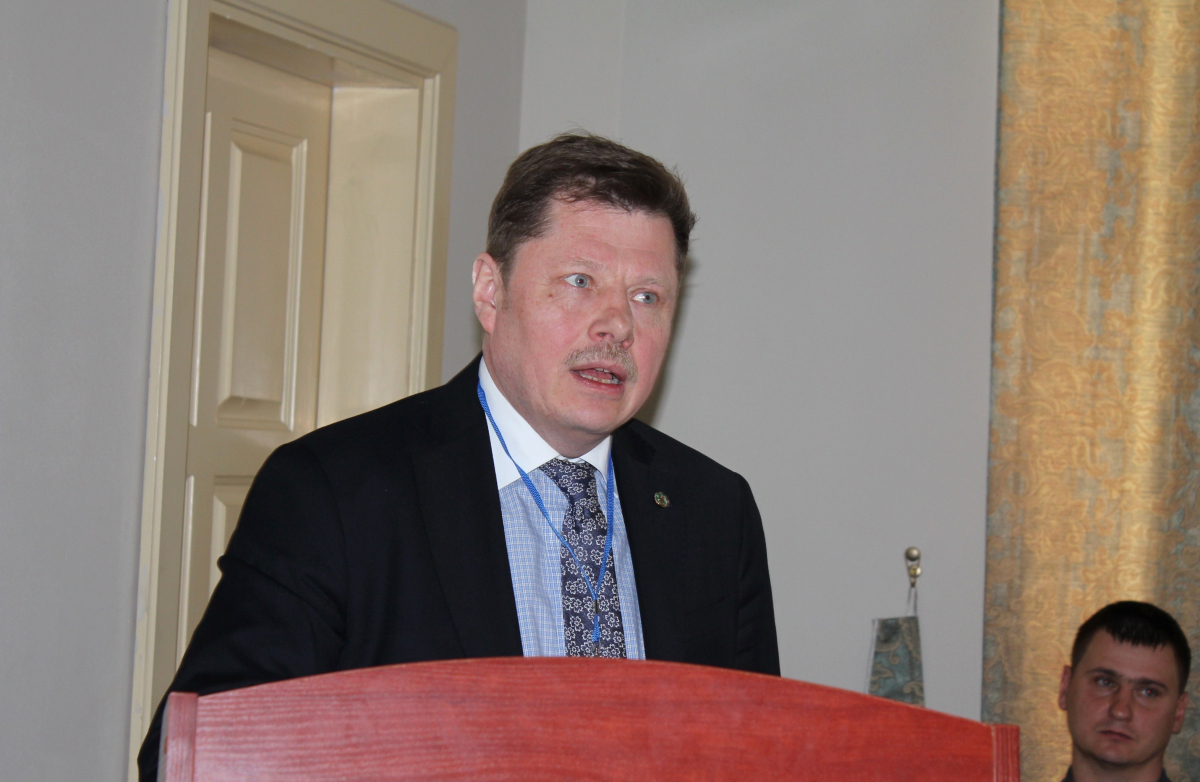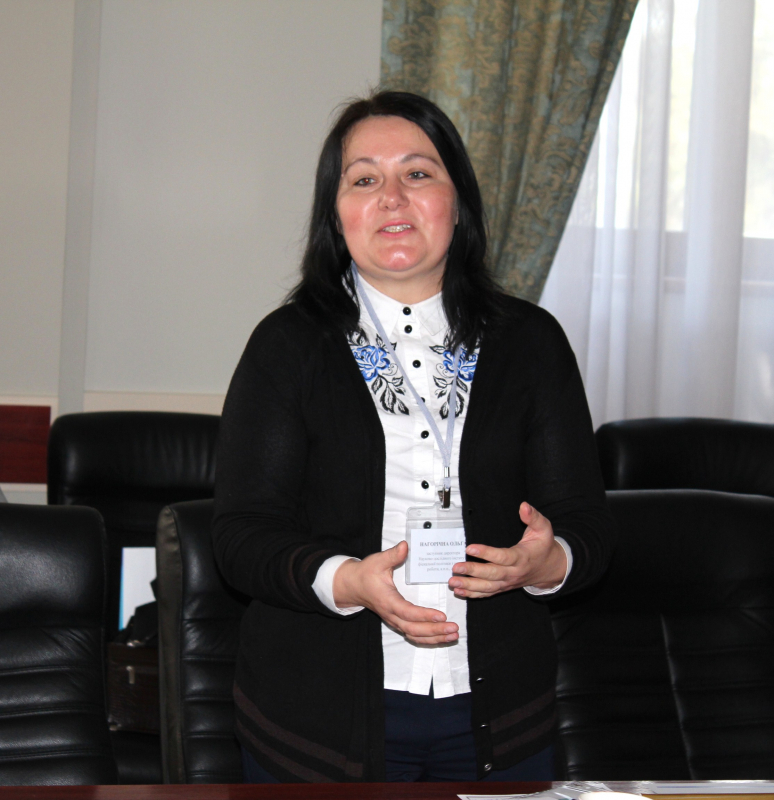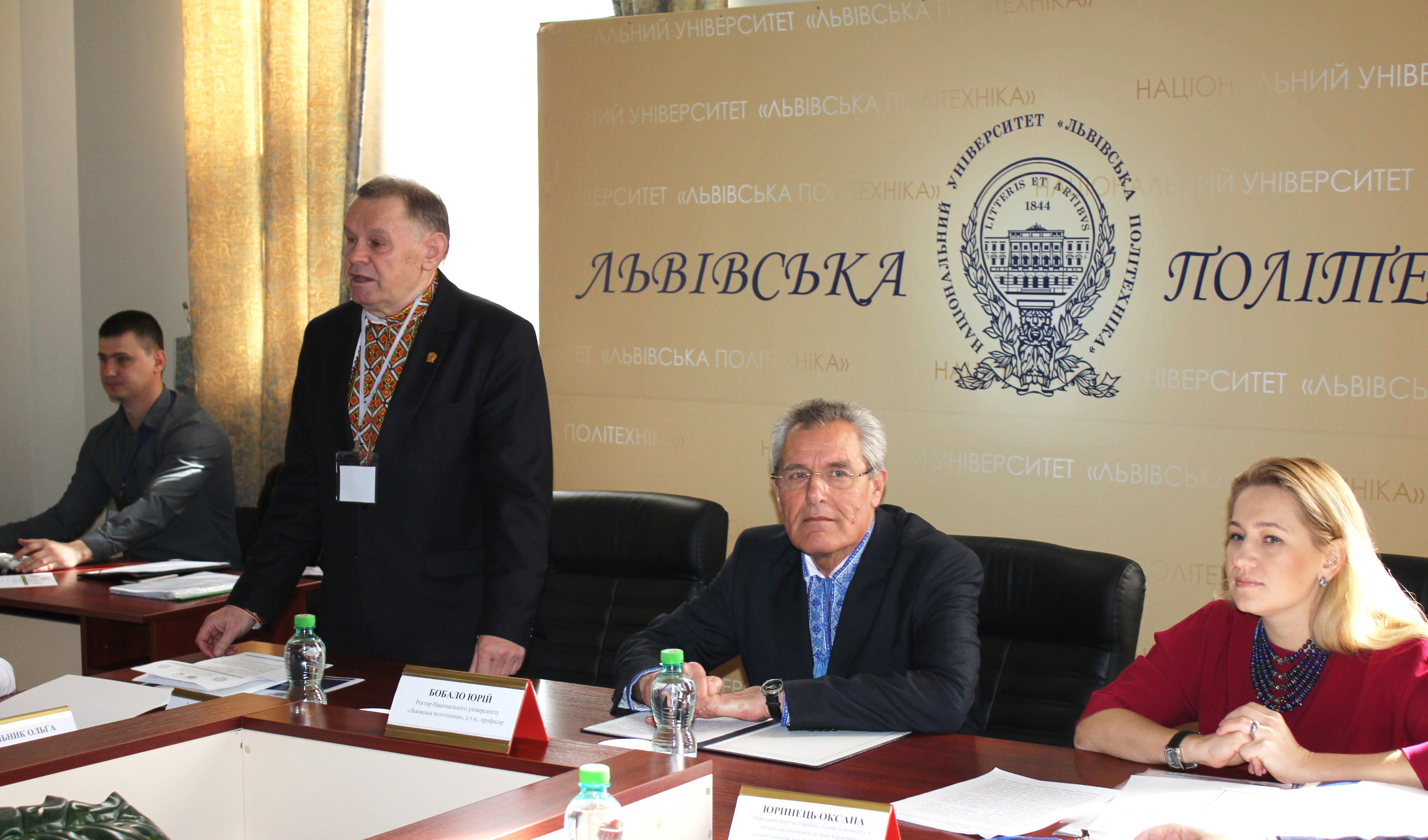By the way, the name of the department was suggested by Professor Oleh Kuzmin, PhD, Director of the Institute of Economics and Management. It would be a pity not to have such department, taking into account the research potential of Lviv school of Economics, geographical location of our region and, of course, fast pace of European integration over the last few years.
The staff of the Department marked its first small anniversary by holding the 3rd International Academic Practical Symposium «Foreign Trade and Customs Management Issues in terms of Euro-Association». Professor Yuriy Bobalo, Lviv Polytechnic Rector, greeted the participants. He said that this serious event was held within the framework of celebrating University bicentenary and holding Science Festivities.
Rector stressed that Lviv Polytechnic is an active participant of European integration processes, since it has maintained long-term co-operation with the leading universities of Europe, Polish and German ones in particular. This co-operation involves developing academic mobility of students and lecturers, studying according to the system of double diplomas, common research work within the frameworks of grant programs. Nowadays education and science are a powerful drive for progress and economic development on the global scale.
It is only natural that associate professor Oksana Yurynets, PhD, people’s deputy of Ukraine, Head of the subcommittee on regional and cross-border co-operation between Ukraine and EU countries of the Verkhovna Rada of Ukraine Committee on European integration, greeted the participants and made the first report. She said that European integration means not only unification of the normative and legal base, simplification of the customs procedures and cancelling visas for Ukrainians. European civilized way also refers to social aspects, mutual enrichment of cultures and spiritual values, raising the standard of living in our common European home. Our moving closer to Europe involves a number of steps in different spheres: taxation, customs, technological standards, conformity evaluation, setting up and suspending enterprise, reforming all economic system of Ukraine.
We have decided to list the names of all participants of the Symposium in order to prove its level and to show that the topic of the discussions was very relevant to the needs of real economy. Among the participants, there were Roman Fylypiv, director of the department of economic policy of Lviv regional state administration, Olha Syvak, head of the department of foreign trade relations and investment of Lviv city council, Taras Kytsmey, «SoftServe» co-founder and member of the Board of directors, Andriy Todoshchuk, deputy head of Lviv Customs, Volodymyr Korud, vice-president of Lviv Chamber of Commerce, head of the international economic relations department, Oleksadr Prokopyuk, Rector of the Higher School of Economics in Białystok (Poland), Olha Nahorichna, deputy director of the Research Institute of fiscal policy for research of the University of the State Fiscal Service of Ukraine, Nicolette Illeysh, winner of the All-Ukrainian competition of student research works, student of the Department of Foreign Trade and Customs.
All of them participated in the discussion «Adapting foreign trade and customs regulation mechanisms in terms of European integration». Professor Oleh Kuzmin, Director of the Institute of Economics and Management, was the moderator of this discussion.
The second section discussed «Prospects for the development of foreign trade business structures in terms of implementing Ukraine – European Union Association Agreement». Professor Olha Melnyk, PhD, Head of the Department of Foreign Trade and Customs, and Oksana Yurynets, people’s deputy of Ukraine, were moderators of this discussion. Professor Svitlana Ishchuk, head of the department of the region industrial sphere development and investment of the State Institution «Institute of Regional Research named after M. I. Dolishniy of the NAS of Ukraine», Anton Podilchak, lawyer, head of the coordination board of European Business Association Western Ukraine Office, «Advice Group» senior partner, Taras Poberezhnyy, head of the department of «Halka» Trade House, Ihor Protsyk, «Bader Ukraine» foreign trade manager, Ruslan Veleshchuk, «Green Light Ltd.» Director, Maksym Voytsehovskyy, supervisor of the direction for providing taxation and legal consulting services of CHRG in Western Ukraine, Anastasiya Haryacha, winner of the All-Ukrainian competition of student research works.
After the Symposium, we talked to Olha Melnyk, Head of the Department of Foreign Trade and Customs.
– What I the Department like now, are you strong enough?
– Nowadays 27 people work at our department, 21 of them are candidates and two are doctors of science. Almost all of them speak English, taking into account the characteristic features of our work. Some are learning the language. The point is that 17 courses are taught in English at our department. We are a graduate department, we train experts in the field of «Foreign Trade Management». Within this field, there are three specializations «Foreign Trade Management», «Customs Management» and «International Tourism Management». Two years ago the department was given a license for the speciality «Applied Economics». It is aimed at training economists-analysts. It is especially popular among to IT experts, programmers, who are trying to enrich themselves with the knowledge of Economics in order to create better business software. I think that the main criteria for evaluating our work is the fact that our graduates find jobs according to their speciality, and we receive positive references about them.
– I would like to make this article interesting for as many readers as possible. It goes without saying that the subject of customs, investment climate, tax system worries a lot of people. Everyone is talking about it. Could you share your opinion about this?
– We dealt with burning issues at our symposium. They included the problems of corruption, bribery, tax pressure. However, I would like to begin with positive things. EU requirements in terms of implementing Ukraine-EU Association Agreement have created a number of real simplifications for business in the customs sphere. From now on the Customs issue free «EUR-1» certificates. This is a certificate of origin for the goods that are exported from our country to the EU. Earlier these certificates were issued by the Chamber of Commerce and you had to pay for them.
The next thing is that Ukrainian foreign trade subjects have been granted the so called status of approved or authorized exporter. This status gives foreign trade subjects more autonomy in determining the origin of goods.
The third point is that the system of automatic use of tariff quotas for EU export has started to operate in Ukraine. It is mainly agricultural goods which, on condition of definite quantity limits, can be exported to EU with zero or preferential duty. This process is automated. Any foreign trade subject can see on-line which quotas have not been used yet, and, within the limits of these quotas, it can register its goods at the customs. The quotas are opened according to the principle «First come, first served». This automated process does not allow any external interference.
A very important thing is that registering licenses for customs clearance agents has been cancelled. Now any business expert, who thinks he/she has the necessary knowledge and qualifications, is able to register goods at the customs. According to Ukraine-EU Association Agreement, public councils at the customs offices have been introduced. We can have different views on their efficiency, but still it is an opportunity to influence the work of customs offices and control them.
I should also mention the fact that Lviv regional state administration website contains interactive maps of international checkpoints and customs offices. They enable us to see queues, to manoeuvre to cross the border with our goods easily. Since February 2017, one of the customs offices that work round the clock has been operating in Lviv region as an experiment. Any foreign trade subject from Ukraine can, for instance, return from Poland and register goods at night without additional payment.
– If we speak about investment attraction, more and more western partners are paying attention to Western Ukraine. I think it is not only because of cheap labour…
– There are many factors. We are close to EU borders. We have good infrastructure. There are a lot of well-educated hard-working engineers and workers in Galicia. Finally, we are far from the war. And the attitude of the local authorities to foreign business plays an important part. Almost 50 enterprises have been opened in Lviv region in the last year. An investor support service, which really works and helps investors open enterprises (land search, registration, engineering communications, etc.), has been created in Lviv regional state administration.
– Our readers will not believe that everything is so great. We have to speak openly about corruption, bribery. The case of Roman Nasirov is notorious…
– If we speak about corruption at the customs offices, this is the problem not only of local offices, but of significantly higher institutions. You cannot catch every person who takes bribes red-handed. I think that government, local authorities, the public have to find a way to prevent such disgraceful things. They have to create such conditions for foreign trade, customs, any business, that they will not depend on civil servants. As far as the tax pressure is concerned, a moratorium for checking small and medium business has been declared. These checks have to be of documentary character, without pressure and blocking the work of the enterprise. However, businessmen keep on complaining about the highhandedness of fiscal authorities. They have to pay profits tax in advance. There is no profit yet, but they demand money. There continue to be problems with VAT return, which takes a lot of free money from exporter.
– Tell us a few words about yourself.
– I was born in 1980 in Lviv. My parents are Lviv Polytechnic alumni. I left Lviv school № 67 with a gold medal, then I graduated from our university with appreciation, the Institute of Economics and Management. I defended my doctoral thesis at the age of 31.
– What are your academic interests?
– They include reforming customs policy in Ukraine at the modern stage, especially in terms of European integration. Of course, they include foreign trade and systems of economic diagnostics at different levels of national economy, evaluating investment attraction, competitiveness, bankruptcy diagnostics, etc. Last year, together with a team of lecturers, I received a grant from the President of Ukraine to study the unification, harmonization of the normative methodological and indicatory base of social economic diagnostics in terms of European integration. We have completed this work successfully. To finish our conversation about the symposium, I would like to say that now we are finishing the development of summary recommendations, which Oksana Yurynets, people’s deputy of Ukraine, will give to her colleagues and members of the government.
